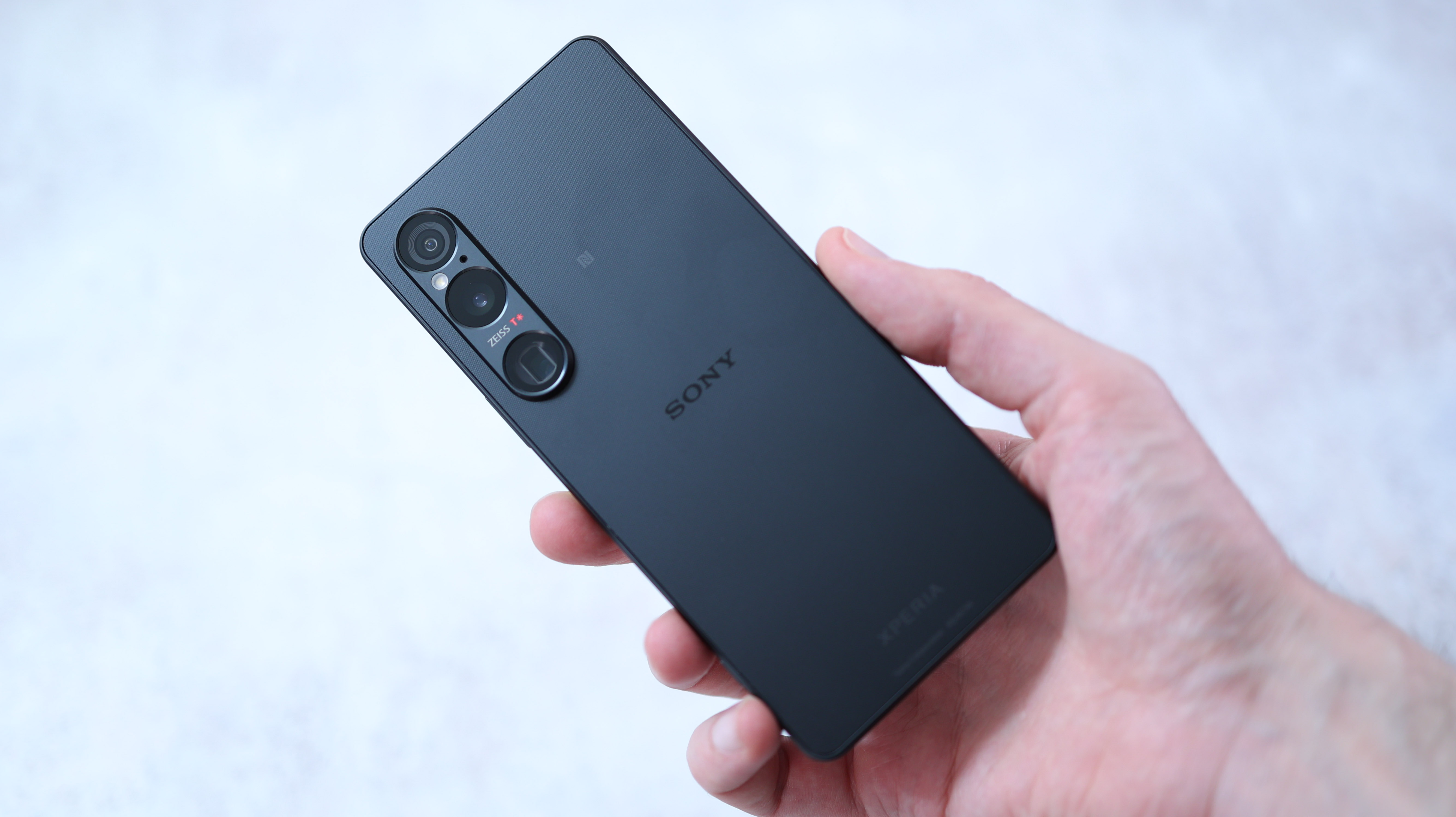
Year upon year Sony has continued to deliver impressive Xperia 1 flagship phones. They've always fallen short of being the best Android phones for me, though, despite establishing a cult-like following among fans who will vehemently disagree with me. Which is fair enough – Sony's niche appeal absolutely earns its place.
But 2024 looks to be all change, with the electronics giant introducing the Xperia 1 VI – the sixth-generation of Sony's flagship, sat above the also-just-revealed Xperia 10 VI – with some major changes that I've been hoping for years now would be implemented. And it's truly exciting stuff that I think both fans and newcomers alike will find impressive.
Some of these new features – which I've split into a top 5 below for ease of reading – may appear as downgrades to some readers though. But I disagree: I think Sony is listening to a broader audience base and by tuning its Xperia 1 VI to compete with the best phones on the market – from Samsung's Galaxy S24 Ultra to Apple's iPhone 15 Pro Max – it's created an intelligent upgrade that looks great.
1. A sensible aspect ratio
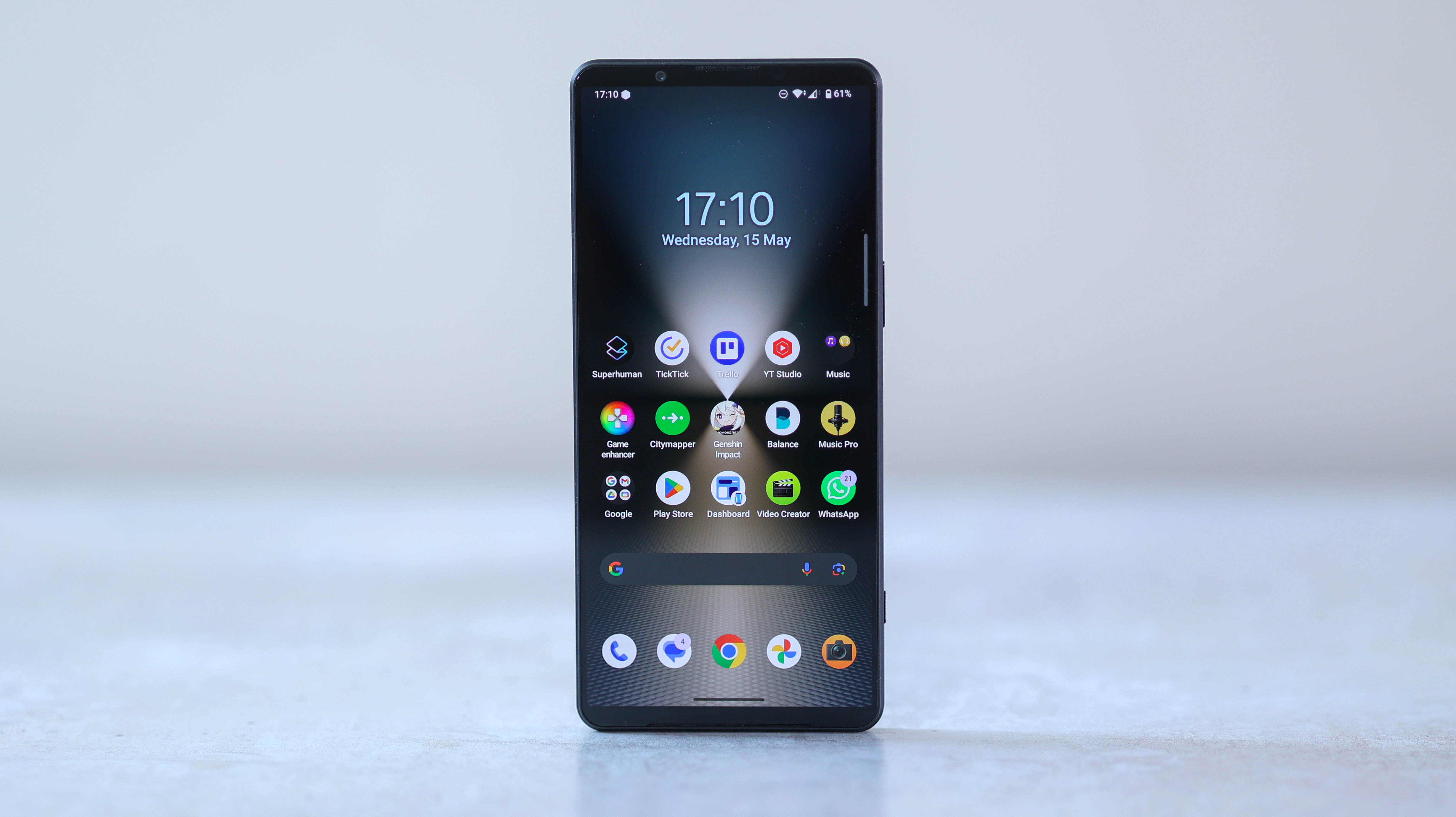
For a long time Sony has been pushing a 21:9 aspect ratio in its Xperia phones. Indeed, it was in 2019 that the first Xperia 1 was revealed, that being the first phone ever with this ultrawide display format.
The idea sounded great: a cinema-like screen that'd be a perfect match for movie-watching on the go, backed up by Sony's long-established cinematic credentials and proven TV technologies. No other brand had gone down this road, so it was also a point of difference.
Except, in phone format, it was divisive. Some loved it, some (myself included) didn't so much. Having a 21:9 unit in the hand makes a phone very 'long' – and I've always found the Xperia 1 series too 'tall' as a result. Until now. That's because the newly announced Xperia 1 VI has done away with its more niche aspect ratio and opted for a 19.5:9 display instead.
The Sony's new 6.5-inch panel implementation is going to compete more directly with its main competition, too, as a more practical alternative to Samsung, Google, Apple, OnePlus, et al. I think it's a very sensible change that now aligns Sony as a more mainline option with wider appeal.
2. Be gone 4K!
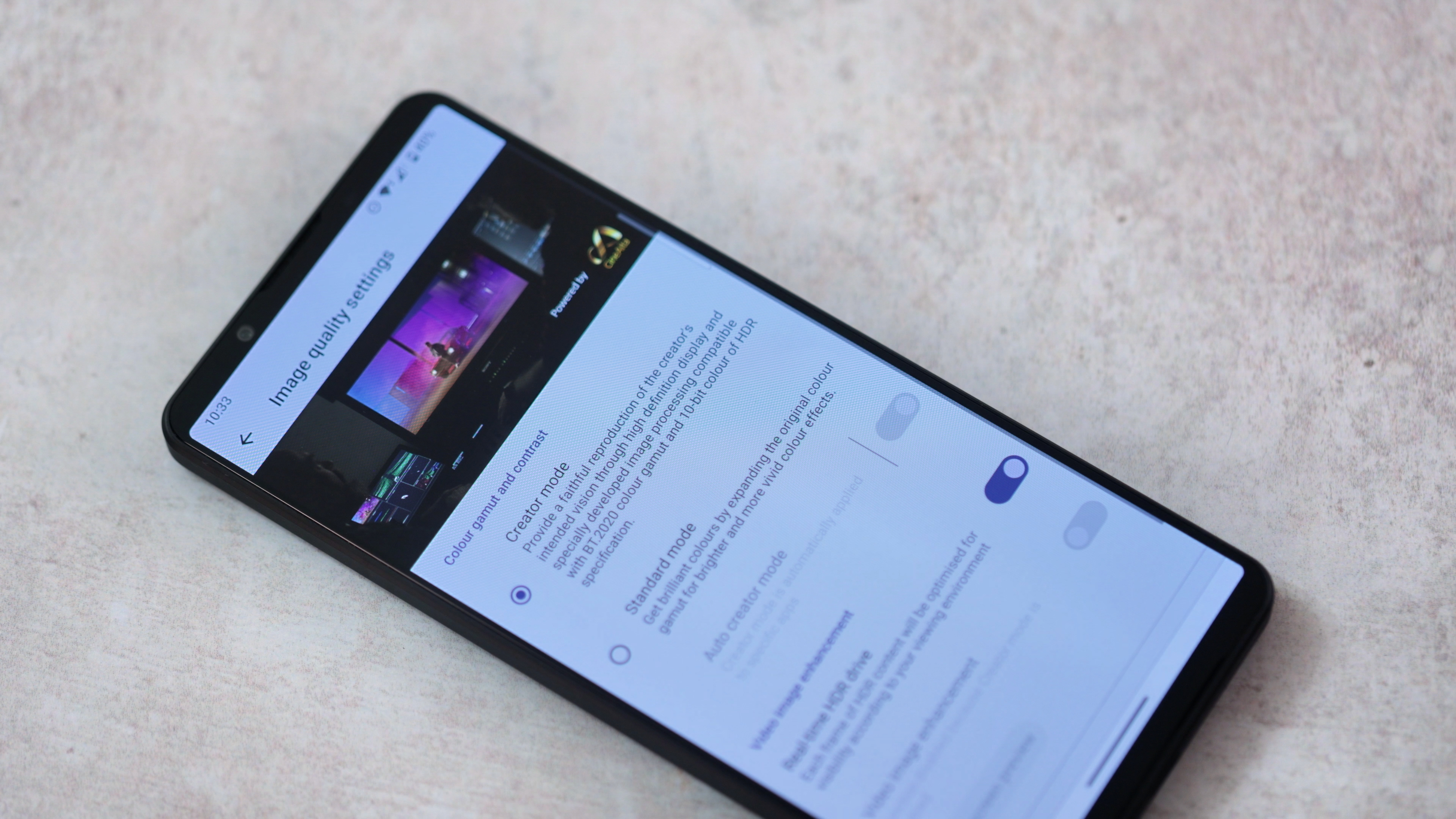
This next point might be more controversial, but I think it's another change that Sony has needed to make for a long time: the long-established 4K panel of previous Xperia 1 handsets has also been shown the door.
The Xperia 1 VI instead opts for a Full HD+ panel. Which, if you're like me, is the default lower-resolution setting you'd always put previous Xperia 1 phones into for the sake of saving battery life. Having 4K resolution is great at the correct scale – but in a small handheld panel, with very limited content to benefit, it was overkill for almost all applications in my view.
Lowering the resolution brings some other bonuses: the OLED panel that Sony is using is much brighter (50% more at peak brightness) than its Xperia 1 V predecessor, while a true variable refresh rate means the 120Hz smooth panel can opt for any rate right down to 1Hz. It's just all-around better for most use cases.
3. An epic optical zoom
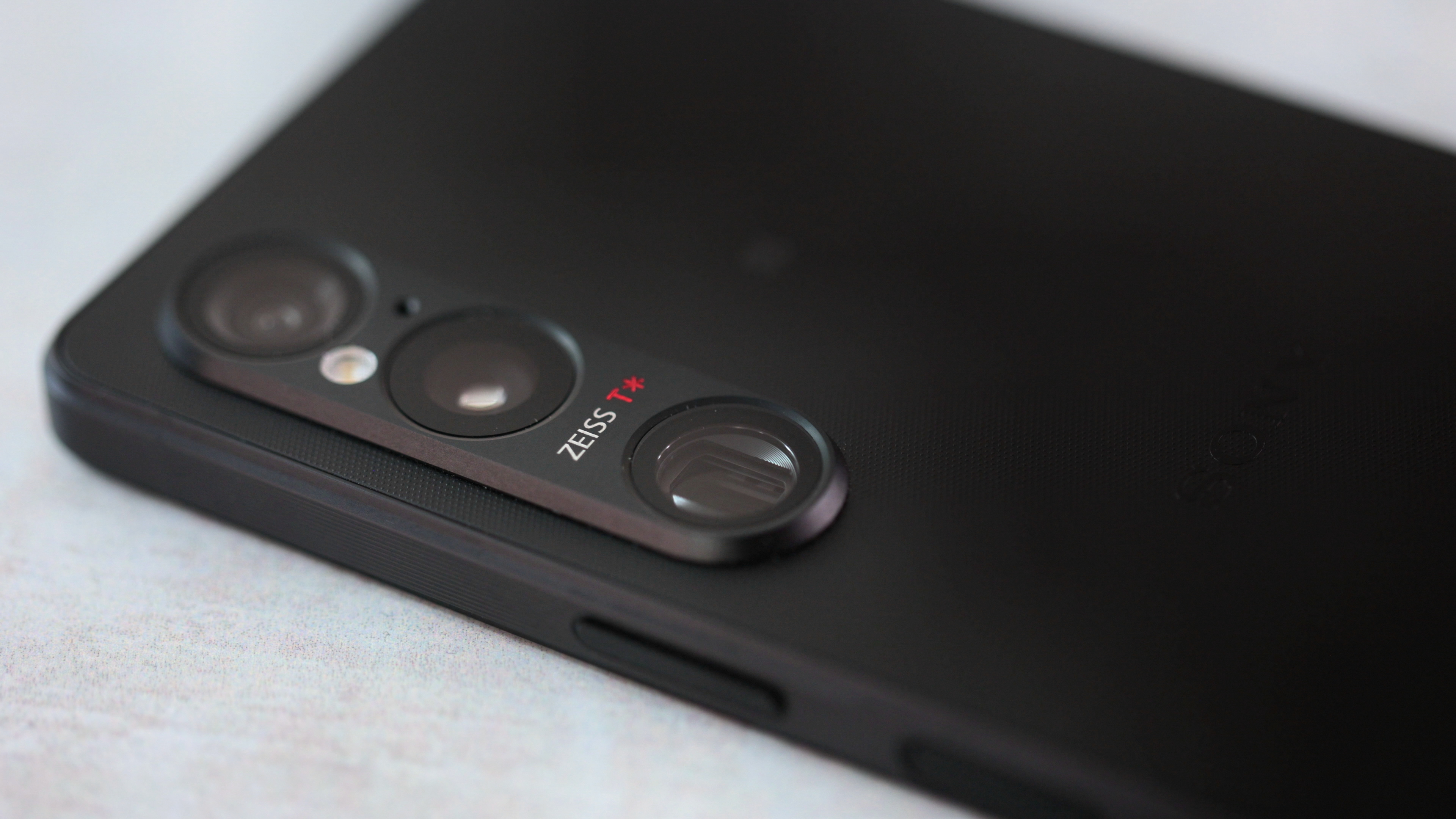
Aside from the Xperia 1 VI's design reformat and significant screen change, however, there's a major new feature tucked into the rear cameras: a brand new true optical zoom lens that provides an 85-170mm equivalent (circa 3.5x to 7.1x what the main camera offers; there's also a wide-angle as part of the triple-lens offering).
I think that's a big boost in a camera market where many manufacturers have opted for digital zoom solutions that are often overreaching. People don't need 100x zooms in mobile phones in my opinion. We want decent quality, which is what optical clarity can provide. I've often said that the 10x zoom offerings in various cameras are too significant a 'jump' in focal length, too, so hopefully Sony's solution provides a better overall balance.
Interestingly it's also possible to use this zoom lens for macro photography. Most competitors use wide-angle lenses for close-up shooting capabilities, which tends to result in very soft edges and blurring, and typically limited quality (as often the sensor used isn't up to parity with the main camera). The ability to use this zoom lens as close as 4cm away at an 85mm equivalent sounds great.
Sure, the optical zoom is paired with a 12-megapixel sensor, not something as high-resolution as the 48-megapixel Exmor T sensor used in the main camera, so there's still a question mark over what the clarity will be like. But, generally speaking, I think Sony is making all the right moves in its camera department.
4. A neater camera app
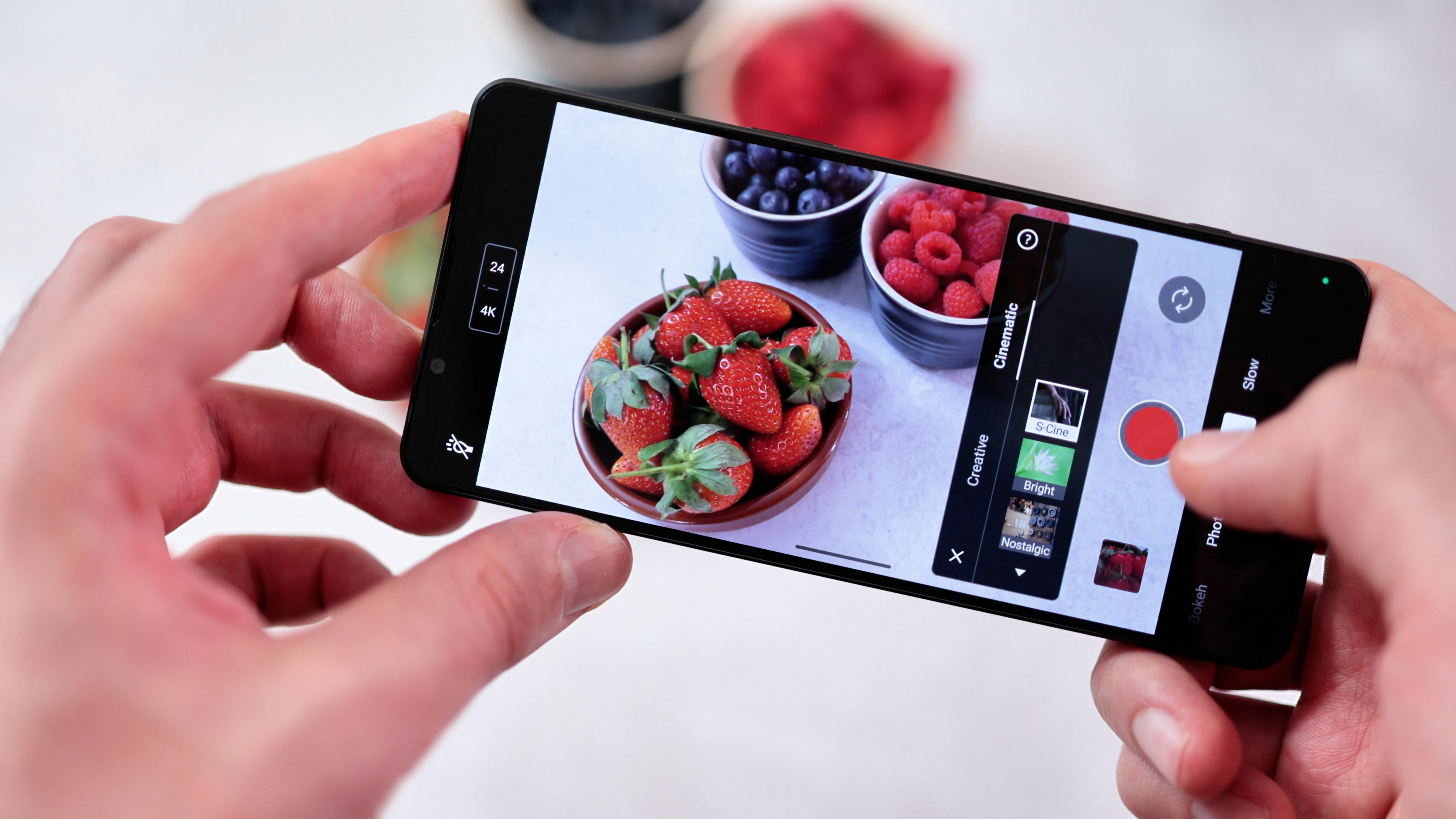
Speaking of its camera department, the next big change comes in the Camera app. Notice I didn't say 'apps' plural – a long-running way in which Sony has divided its various Cinema Pro, Photography Pro, and Video Pro applications.
In the Xperia 1 VI there will now be one dedicated app to encapsulate all controls and options. I think that's a much neater, tidier way to access shooting – whether you want to point and shoot or dig deeper into manual settings and more complex controls.
And Sony sure does offer a suite of complexity, given its longstanding Alpha cameras heritage – much of which is absorbed into the Xperia's new Camera app. I love using Sony's high-end cameras and to see the likes of AI eye-recognition for autofocus of both human and animal subjects is great. There's even a pose estimation tracking technology that uses AI to predict human movement to maintain focus, even if foreground objects get in the way.
Sony maintains its dedicated shutter button in the Xperia 1 VI's design, too, so that's going nowhere. Ultimately this new flagship is trying to show off that it's a camera phone to take on its biggest competition. I think it all sounds very convincing indeed.
5. Power balanced with battery life
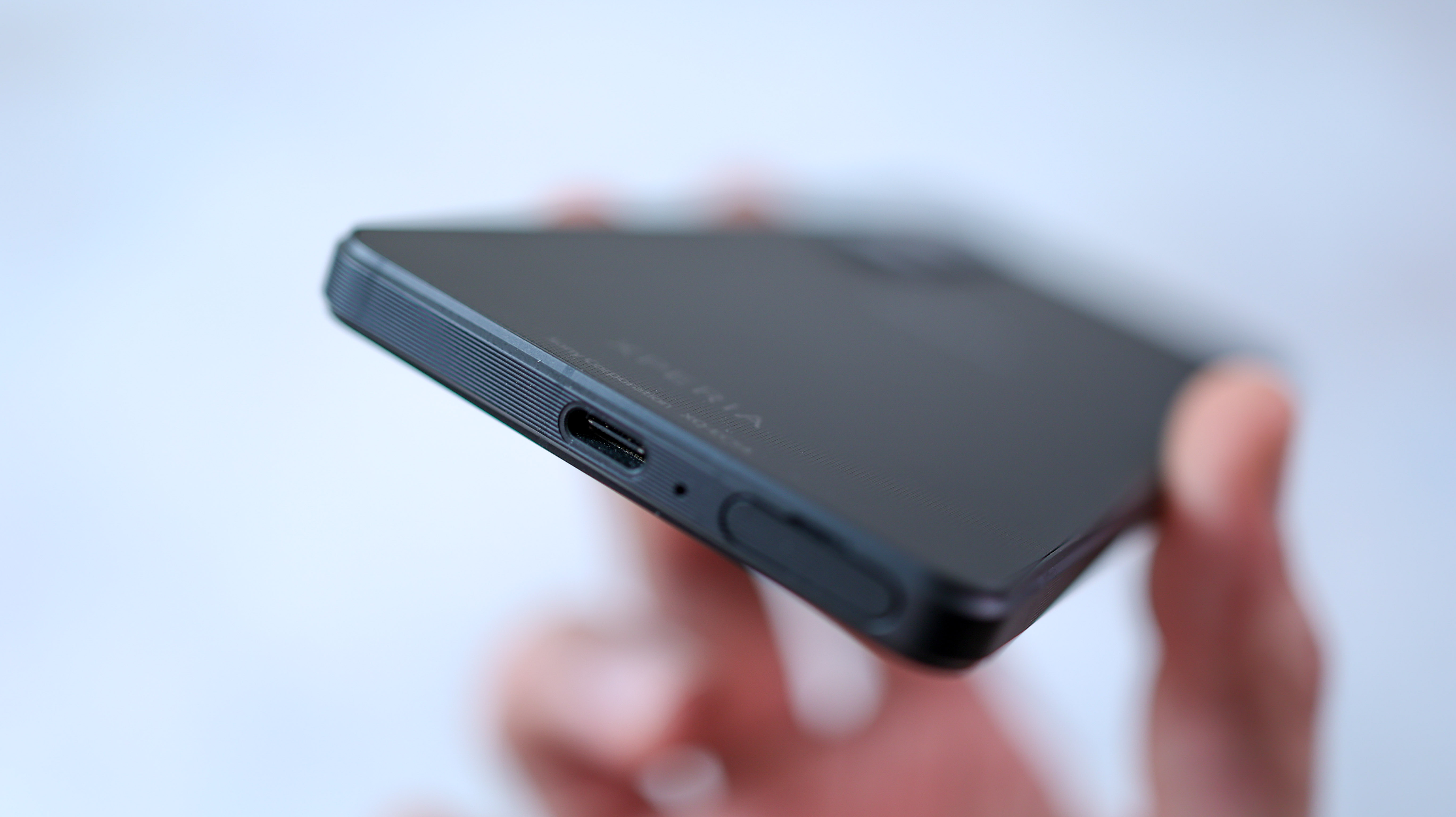
Although not a major 'change', per se, as Sony has always used top-tier processors in its Xperia 1 series, the appearance of Qualcomm's Snapdragon 8 Gen 3 chip here is no surprise. But it's important to know you're not getting short-changed in the power department.
While that chip is even better with power efficiencies than its previous iterations, it's the adjustment of the display (lower resolution and variable refresh rate) that further promise even better battery life per charge. And as the Xperia 1 VI features a decent-capacity 5,000mAh cell I think that sounds entirely believable.
All of which adds up to something I honestly didn't expect: a Sony flagship phone that's every bit a true competitor for the likes of Samsung and more. That new screen proposition and camera upgrade make the Xperia 1 VI sound like the phone I've been wanting on for years. Here's hoping Sony can make my dreams come true – although with a £1,299 price tag in the UK it (as expected) doesn't come cheap.







